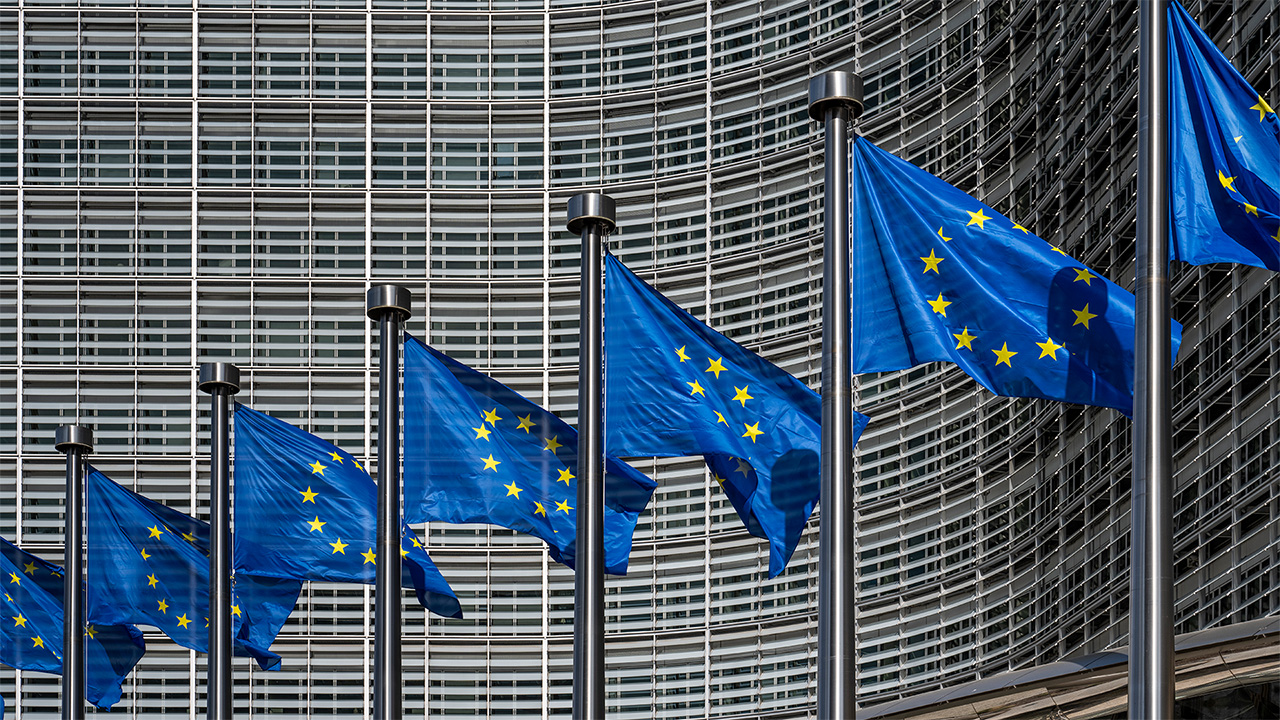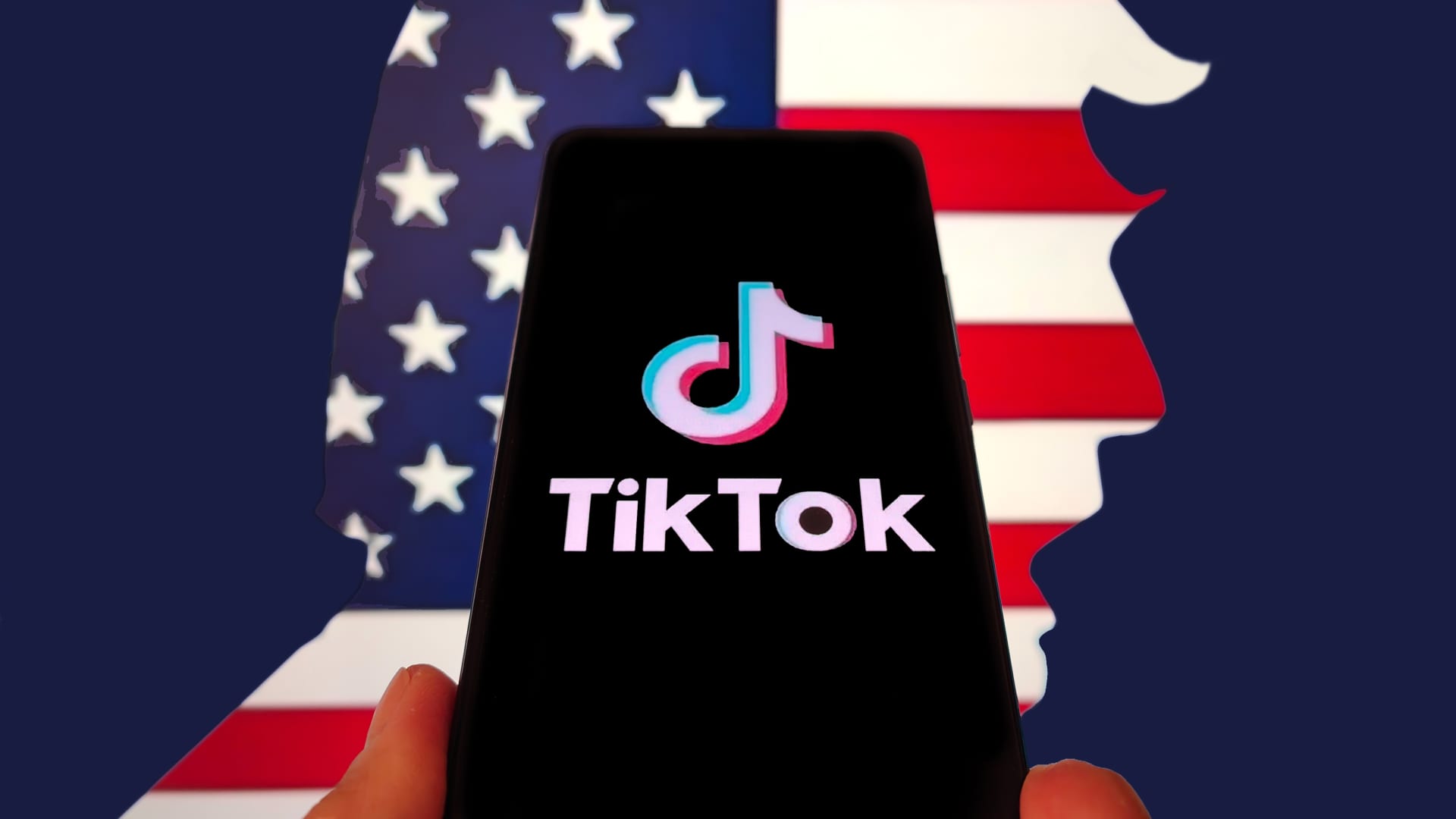By George Phillips
Copyright tomsguide

Skip to main content
Tom’s Guide
Newsletters
View Profile
Search Tom’s Guide
Phone Insights
Phone Best Picks
Phone Deals
Phone Face-Offs
Phone How-Tos
Phone Reviews
Network Carriers
Android Phones
Google Phones
Motorola Phones
OnePlus Phones
Samsung Phones
Nothing Phone
TV Best Picks
TV Face-Offs
Audio Insights
Audio Best Picks
Audio Deals
Audio Face-Offs
Audio How-Tos
Audio Reviews
Over-Ear Headphones
Bluetooth Speakers
Smart Speakers
TV & Audio Brands
Entertainment
Streaming Devices
Prime Video
Paramount Plus
PlayStation
Handheld Gaming
Gaming Peripherals
Connections
Computing Insights
Computing Best Picks
Computing Deals
Computing Face-Offs
Computing How-Tos
Computing News
Computing Reviews
VPN Best Picks
VPN Face-Offs
VPN How-Tos
VPN Reviews
Operating Systems
Identity Theft Protection
Parental Controls
Malware & Adware
Virtual Reality
Augmented Reality
Smart Glasses
Chromebooks
Gaming Laptops
Apple Desktops
Gaming Desktops
Android Tablets
Computing Brands
AI Insights
AI Best Picks
AI Face-Offs
Google Gemini
Apple Intelligence
Mattress Best Picks
Mattress Deals
Mattress Face-Offs
Mattress How-Tos
Mattress News
Mattress Reviews
Mattress Care
Mattress Toppers
Pillows & Bedding
Smartwatches
Fitness Trackers
Smart Rings
Apple Watch
Home Insights
Home Best Picks
Home Face-Offs
Home How-Tos
Home Reviews
Home Topics
Home Appliances
Home Office
Home Security
Home Brands
Popular Brands
View Phones
Phone Insights
Phone Best Picks
Phone Deals
Phone Face-Offs
Phone How-Tos
Phone Reviews
Network Carriers
View Network Carriers
Android Phones
View Android Phones
Google Phones
Motorola Phones
OnePlus Phones
Samsung Phones
Nothing Phone
TV Best Picks
TV Face-Offs
Audio Insights
View Audio Insights
Audio Best Picks
Audio Deals
Audio Face-Offs
Audio How-Tos
Audio Reviews
Headphones
View Headphones
Over-Ear Headphones
View Speakers
Bluetooth Speakers
Smart Speakers
TV & Audio Brands
Entertainment
View Entertainment
View Streaming
Streaming Devices
Prime Video
Paramount Plus
View Gaming
PlayStation
Handheld Gaming
Gaming Peripherals
Word Games
Connections
View Computing
Computing Insights
Computing Best Picks
Computing Deals
Computing Face-Offs
Computing How-Tos
Computing News
Computing Reviews
VPN Best Picks
VPN Face-Offs
VPN How-Tos
VPN Reviews
View Hardware
View Software
Operating Systems
View Security
Identity Theft Protection
Parental Controls
Malware & Adware
View VR & AR
Virtual Reality
Augmented Reality
Smart Glasses
View Laptops
Chromebooks
Gaming Laptops
View Desktops
Apple Desktops
Gaming Desktops
View Tablets
Android Tablets
Computing Brands
AI Insights
AI Best Picks
AI Face-Offs
AI Engines
Google Gemini
Apple Intelligence
View Wellness
Mattresses
View Mattresses
Mattress Best Picks
Mattress Deals
Mattress Face-Offs
Mattress How-Tos
Mattress News
Mattress Reviews
Mattress Care
Mattress Toppers
Pillows & Bedding
View Fitness
Smartwatches
Fitness Trackers
Smart Rings
Apple Watch
Home Insights
Home Best Picks
Home Face-Offs
Home How-Tos
Home Reviews
Home Topics
Home Appliances
Home Office
Home Security
View Outdoors
Home Brands
Popular Brands
Exclusive Apple Interview
iPhone 17 Pro
Wordle Today
Best laptops
Best Mattress
Don’t miss these
‘The stakes could not be higher’ — VPN providers oppose EU plans to weaken encryption
George Phillips
16 September 2025
The so-called ‘Chat Control’ bill is receiving significant backlash
When you purchase through links on our site, we may earn an affiliate commission. Here’s how it works.
(Image credit: Jacek Kadaj / Getty Images)
Increased vulnerability
The VTI’s criticisms
What happens next?
A collection of VPN providers has issued a stark warning over the dangers of weakening European encryption laws.
The VPN Trust Initiative (VTI), which includes some of the best VPN providers, has issued a statement and paper opposing the so-called “chat control” law being proposed by European Union (EU) member states.
The latest iteration of the Child Sexual Abuse Regulation bill is being championed by Denmark and aims to combat the spread of child sexual abuse material and its associated crimes.
Despite its good intentions, if passed, the bill would involve the scanning of encrypted messages and communications.
This would affect many services that offer end-to-end encryption, including encrypted mail providers like Proton Mail, and the best encrypted messaging apps like Signal and WhatsApp.
The VTI has argued this law would leave EU citizens “vulnerable” and weakening encryption would “endanger us all.”
As of September 12, 2025, 10 EU member states opposed the bill, 14 supported it, and three were undecided.
Despite not achieving full support, the bill hasn’t been defeated, and another meeting is scheduled for October 14.
“Weakening encryption doesn’t make us safer”
In a detailed paper discussing the bill, the VTI says “all VTI members are unequivocally opposed to online criminal activity, and support effective measures to reduce online harms.”
It keeps on saying, however, that there needs to be a “balance between crime-fighting and user safety,” adding that “weakening encryption harms the very security it seeks to protect.”
What is encryption?
Encryption encodes data. It turns it into a random string of unintelligible characters, and prevents it from being read by snoopers and hackers. Encrypted communication between a sender and receiver is private.
The VTI argued that everyone’s encryption security and privacy shouldn’t be sacrificed in order to catch a small minority. It urged “policymakers to avoid measures that erode encryption and put user safety at risk.”
“With the EU’s Member States set to vote on Chat Control, the stakes could not be higher,” said Emilija Beržanskaitė, Co-Chair of the VTI. “Weakening encryption doesn’t make us safer, it makes every citizen, every business, and every government more vulnerable.”
To add to the controversy, it has been suggested that accounts from EU politicians, government, and military officials will be exempt from the laws, with “professional secrecy rules” cited.
(Image credit: J Studios / Getty Images)
The VTI’s criticisms
Security Risks
The VTI says the law would give authorities the power to scan private communications, including those that utilise end-to-end encryption.
A form of “targeted” access is being proposed, where only certain information (shared URLs, pictures, and videos) is scanned before getting encrypted. However, the VTI doesn’t see this as a solution, arguing that you either provide full encryption for everyone or no one.
It says “there is no way to create a selective weakness” that selected individuals can exploit. Inevitably, any weakness could also be exploited by hackers.
The VTI also argues that weakening encryption directly contradicts the EU’s roadmap to post-quantum cryptography. Post-quantum encryption is the new industry standard, and a handful of VPNs have already adopted it. The VTI says you “cannot have opposing initiatives.”
The following recommendations were proposed by the VTI:
Reject any legislation that weakens encryption, mandates encryption backdoors, or imposes technical requirements
Preserve strong encryption standards without exception for companies dealing with user data
Strengthen targeted and proportionate investigative capabilities that do not require weakening encryption
Privacy Risks
Encryption can be a lifeline for journalists, activists, and those living under internet censorship. It protects individuals and enables safe and secure access to communication. The VTI calls encryption “a non-negotiable safeguard for the rights to privacy and freedom of expression.”
The group warns that, if encryption is weakened, personal data is at risk. Hackers can steal or misuse data. The VTI says encryption protects everyone, “not just those with something to hide.”
The VTI called on privacy to be preserved by “design and default.”
Practical Realities
The VTI believes encryption “is not the root cause of online crime.” It argues the “real drivers” are not being addressed and “breaking encryption only exposes vast majorities of law-abiding users.”
Once encryption is broken, the VTI says there’s “no way back” and small exceptions are in danger of becoming “broader mandates” – which will erode original safeguards.
Concerns are also raised about a “global domino effect” and the potential of other regimes using this legislation “to justify intrusive surveillance.”
The VTI recommends:
Law enforcement are provided more resources
Public-private collaboration is fostered to achieve online safety that doesn’t compromise security
What happens next?
The bill didn’t get full member support at last week’s meeting. It has been reported that Germany’s lack of support for the legislation was a key factor in this outcome. However, Denmark is pushing ahead with the bill.
The Danish Minister of Justice, Peter Hummelgaard, has been quoted as saying, “We need to break with the completely erroneous perception that it is everyone’s civil liberty to communicate via encrypted messaging services.”
The next meeting is due to take place on October 14, and we could see some changes in the position of member states between now and then.
Following this meeting, the legislation would have to pass through the EU Parliament for the final trilogue negotiations with the European Council and Commission before becoming law.
The EU’s Chat Control proposal has been stopped, for now, thanks to opposition from Germany and Luxembourg.But the fight isn’t over. We’ve been opposing this dangerous attempt to weaken encryption since 2022, and the EU will likely try again.September 12, 2025
The failure to achieve full support has been seen as a victory by privacy advocates. But many are expecting further attempts to weaken encryption and this will continue to be opposed.
Follow Tom’s Guide on Google News, or add us as a preferred source, to get our up-to-date news, analysis, and reviews in your feeds. Make sure to click the Follow button!
Today’s best NordVPN, Surfshark, ExpressVPN andProton VPN deals
+3 MONTHS FREE
NordVPN 2 Year
+3 months free
Surfshark 24 Months
+4 MONTHS FREE
ExpressVPN 24 month
Proton VPN 24 Month
We check over 250 million products every day for the best prices
We test and review VPN services in the context of legal recreational uses. For example: 1. Accessing a service from another country (subject to the terms and conditions of that service). 2. Protecting your online security and strengthening your online privacy when abroad. We do not support or condone the illegal or malicious use of VPN services. Consuming pirated content that is paid-for is neither endorsed nor approved by Future Publishing.
See more VPNs News
George Phillips
Staff Writer
George is a Staff Writer at Tom’s Guide, covering VPN, privacy, and cybersecurity news. He is especially interested in digital rights and censorship, and its interplay with politics. Outside of work, George is passionate about music, Star Wars, and Karate.
You must confirm your public display name before commenting
Please logout and then login again, you will then be prompted to enter your display name.
LATEST ARTICLES
NuPhy Air75 V2 vs NuPhy Air75 V3 — I’ve tested both and there’s only one I’d actually buy
This is the smart lock you’re looking for: Wyze’s Palm Lock lets you enter your home like a Jedi
You always need two cameras in your backpack (and one of them should cost under $100) — here’s why
‘The stakes could not be higher’ – VPN providers oppose EU plans to weaken encryption
Prime Big Deal Days is official and there are tons of Amazon deals you can shop now — I’ve picked the best ones
Tom’s Guide is part of Future US Inc, an international media group and leading digital publisher. Visit our corporate site.
Terms and conditions
Contact Future’s experts
Privacy policy
Cookies policy
Accessibility Statement
Advertise with us
Future US, Inc. Full 7th Floor, 130 West 42nd Street,
Please login or signup to comment
Please wait…



